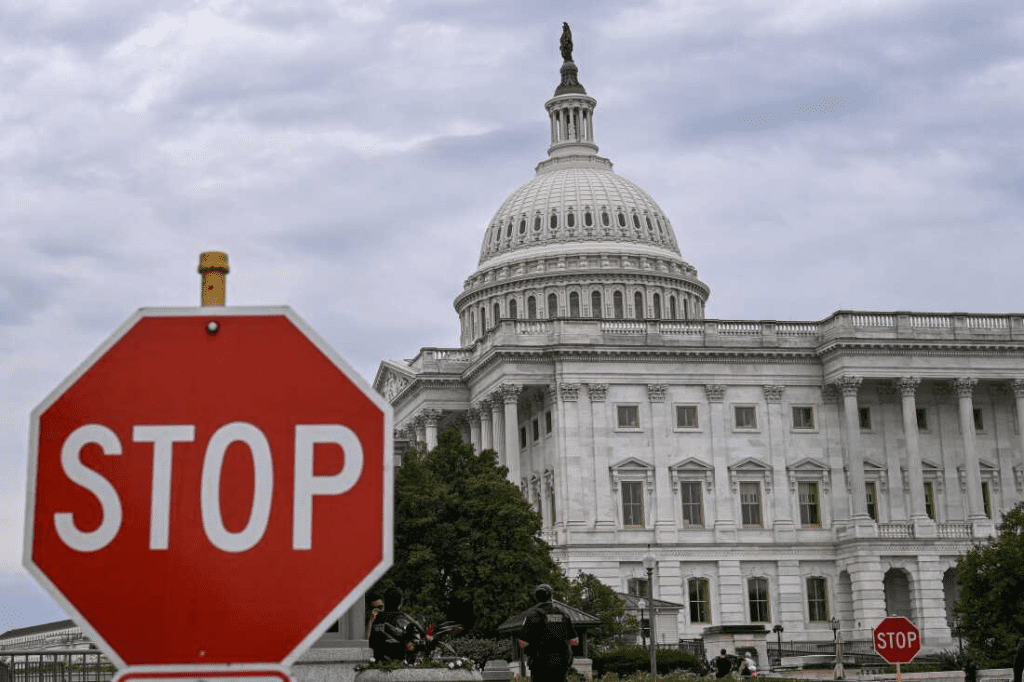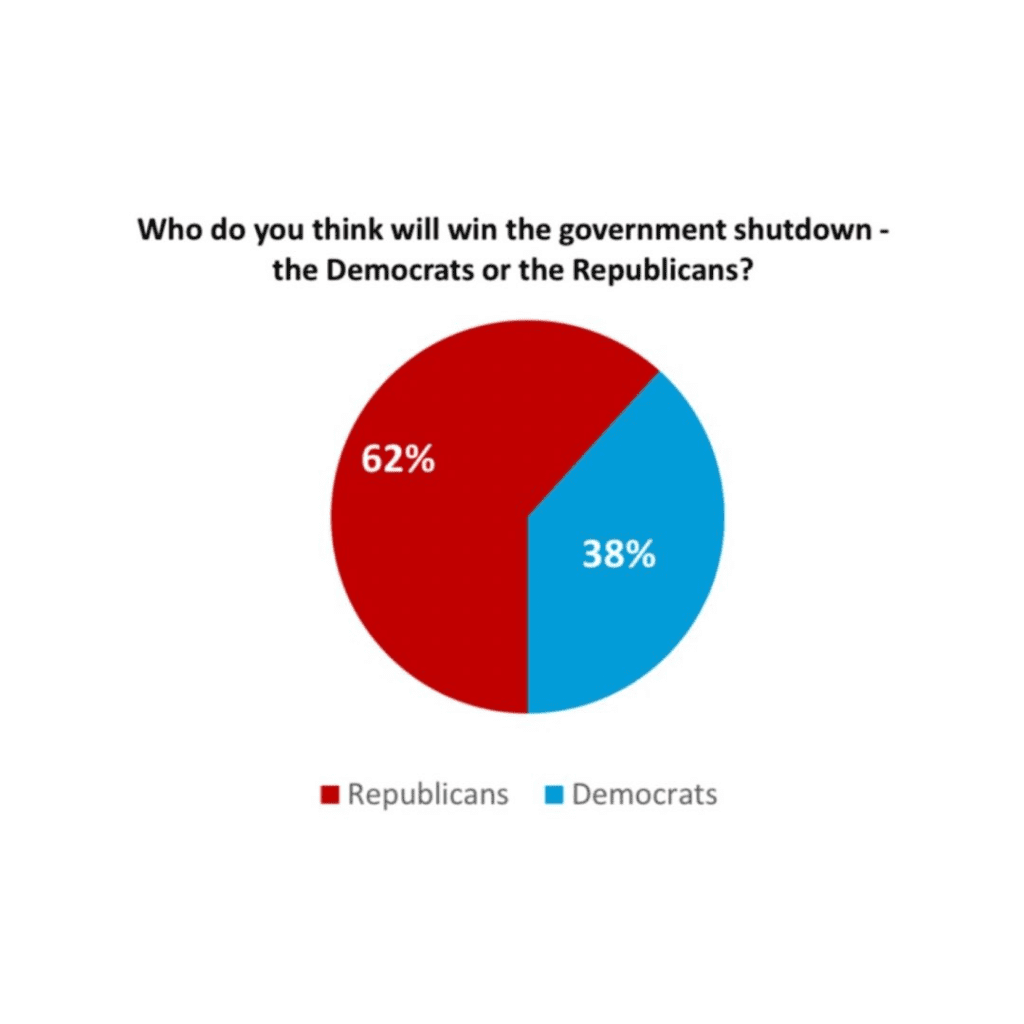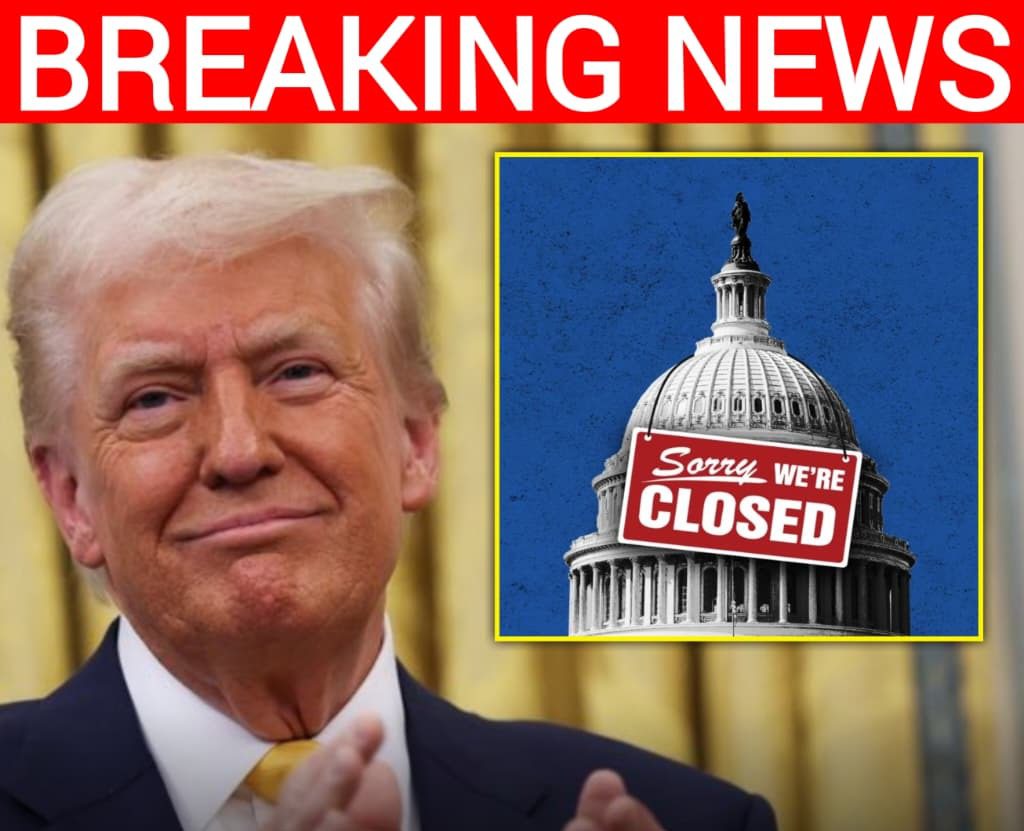Harvard-Harris Poll Reveals 62% of Americans Believe Republicans and President Trump Will Prevail in the Government Shutdown Standoff — Only 38% Side With Democrats
A new Harvard-Harris poll released this week has sent a wave through Washington, revealing that a clear majority of Americans believe Republicans, led by former President Donald Trump, are winning the ongoing government shutdown battle. Conducted between October 1 and 2, 2025, the poll found that 62% of respondents think the GOP will emerge victorious in the high-stakes standoff, while just 38% believe Democrats will come out ahead. The results arrive as the federal government enters its sixth day of partial shutdown amid clashes over spending priorities, immigration enforcement, and budget reforms.

The survey, which polled over 2,000 registered voters nationwide, paints a striking picture of public sentiment at a time when frustration over Washington gridlock is running high. While 70% of Americans said they oppose the shutdown itself, the same group overwhelmingly believes Republicans have the upper hand in how the situation is being handled. This “perceived winner” factor could carry major political implications for both parties as they brace for an extended battle that threatens to reshape public trust ahead of the 2026 midterm elections.

Images of Republican leadership — including House Speaker Mike Johnson and Vice President JD Vance standing shoulder-to-shoulder at press conferences — have fueled a perception of unity within the GOP. The poll’s release also coincides with growing momentum among conservative voters rallying behind Trump’s message of fiscal restraint and border security. The former president, who remains the dominant figure in Republican politics, has called the standoff “a fight worth having,” describing the shutdown as the consequence of “Democratic waste and reckless spending.”

Democrats, however, argue that the situation is being driven by partisan brinkmanship. President Biden and Senate Majority Leader Chuck Schumer have both accused Republicans of “holding the government hostage” to achieve political leverage, pointing to stalled funding for federal agencies and delayed pay for thousands of federal employees. Still, despite these warnings, the latest numbers show Americans appear to view the Republican strategy as more decisive and better organized — at least for now.
Political analysts say the Harvard-Harris findings reflect a growing divide in how voters perceive strength versus responsibility in government leadership. “Americans may dislike shutdowns, but they respond strongly to conviction,” says political analyst Mark Penn, who helped oversee the poll. “Right now, Republicans — and particularly Trump — are projecting clarity and control, while Democrats are being seen as reactive.”
The poll also found that immigration and national security remain key motivators for Republican supporters. Nearly 60% of respondents who identified as independent said they favored stricter border measures, even if it meant delaying a funding deal. Meanwhile, Democratic voters emphasized healthcare and social programs as their top priorities, creating a sharp contrast in what each side considers worth fighting for.

Behind closed doors, negotiations remain tense. Reports from Capitol Hill suggest that both parties have yet to find common ground, with talks breaking down repeatedly over the inclusion of border security provisions in the spending bill. White House officials are pushing for a temporary resolution to reopen federal offices, while GOP leaders insist they will not approve any measure that excludes immigration enforcement funding.
The latest polling could embolden Republicans to stand firm, especially as they see rising public confidence in their handling of the crisis. For Democrats, it poses a difficult challenge — how to regain the narrative without alienating moderate voters tired of political stalemates.
As the shutdown enters its second week, the mood in Washington is one of cautious calculation. Both sides know that the battle for public perception may ultimately matter more than the policy details. For now, the numbers tell a simple story: a majority of Americans believe the Republicans are winning. But with the economy feeling the pressure and public patience running thin, the true outcome may depend on how long either side is willing to hold their ground.


